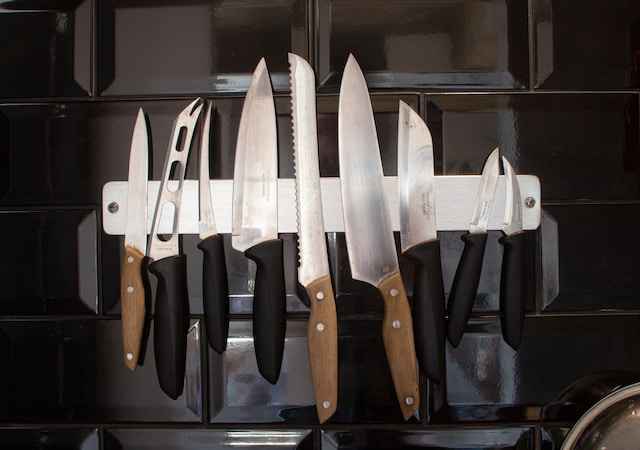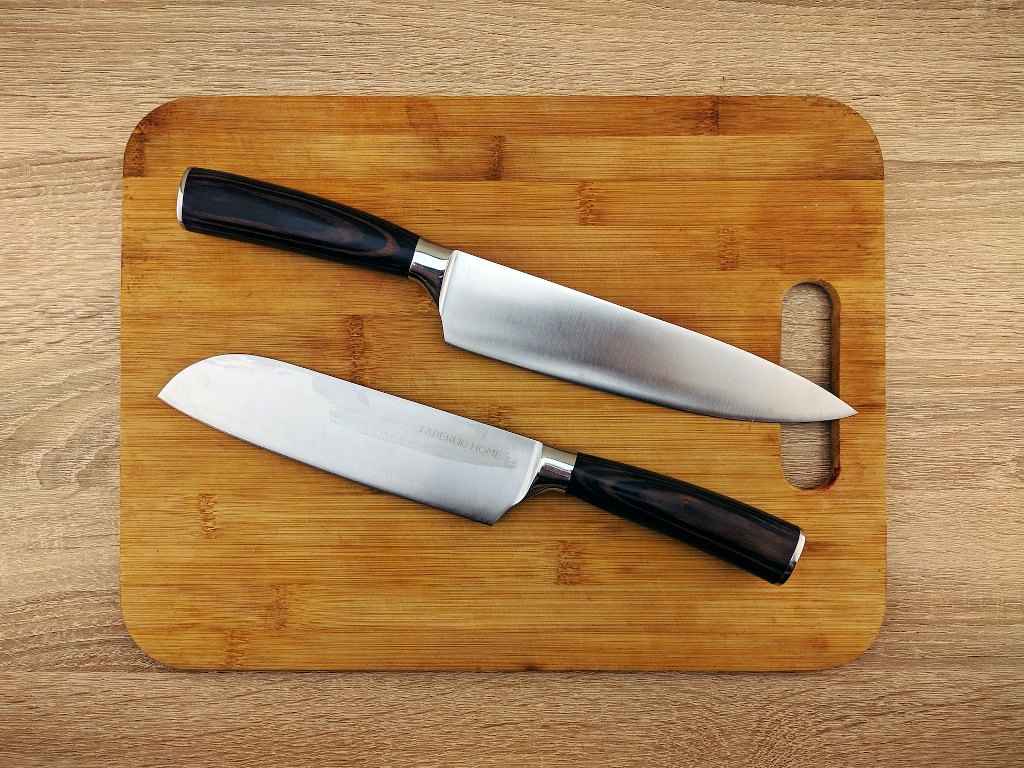Yes, Goodwill accepts kitchen knives as donations, as they are considered cutlery rather than weapons.
When donating kitchen knives, it is important to wrap them securely to prevent injuries and cuts.
You can place the blade inside a cardboard box or wrap it using a newspaper.
However, it’s important to note that each Goodwill location operates independently, and policies may differ from one region to another.
It’s always best to contact your local Goodwill store to determine if they will accept your kitchen knife donation.
If your local Goodwill store does not accept kitchen knives, you can consider donating them to local food banks and shelters, as they often need kitchen utensils, including knives, to prepare meals for those in need.
Are There Any Specific Requirements For Wrapping Kitchen Knives Before Donating Them To Goodwill?
There are some requirements for donating kitchen knives to Goodwill.
It is important to ensure that the knives are in good condition and properly sharpened.
Additionally, it is recommended to hand, wrap, and pack the knives appropriately to prevent any injuries or damage during transit.
However, it is worth noting that kitchen knives fall into a grey area when it comes to Goodwill’s donation policies, as they can be considered dangerous items.
Therefore, it is best to check with your local Goodwill store to confirm their specific requirements for accepting kitchen knives as donations.
How Can I Find Out The Donation Policies Of My Local Goodwill Store Regarding Kitchen Knives?
To find out the donation policies of your local Goodwill store regarding kitchen knives, you can start by checking their website or calling the store directly.
Some Goodwill stores may accept kitchen knives, while others may not due to safety concerns.
According to some sources, Goodwill stores may accept kitchen knives if they are in good condition and properly wrapped and packed to prevent injury during transit.
However, it is best to check with your local store to confirm their specific policies.
You can also check the Goodwill Donation Guidelines and Accepted Items on their website, which provides a list of items that they do and do not accept.
If Goodwill Doesn’t Accept Kitchen Knives, What Other Options Are Available For Donating Them?
If Goodwill doesn’t accept kitchen knives, there are several other options available for donating them.
One option is to donate them to a local shelter, food bank, school, or community center.
Another option is to donate them to organizations that provide gently used items to those in need, such as Habitat ReStores or other donation centers.
Additionally, Boy Scouts, Salvation Army, DNR safety instructors, local knife shops, knifemakers, and thrift shops may also accept knife donations.
If donating is not an option, knives can be safely disposed of by wrapping them properly and throwing them away in a sealed container, or by recycling them.

Are There Any Restrictions On The Types Of Kitchen Knives That Goodwill Accepts?
Goodwill generally accepts gently used items in good condition that are clean, safe, and resaleable.
However, when it comes to kitchen knives, there may be legal or safety concerns surrounding their acceptance, as they can be considered dangerous items.
That being said, according to some sources, including Knives Sensei and Food and Life Lover, Goodwill does accept kitchen knives as donations, as they are considered cutlery rather than weapons.
It is recommended to wrap the knives securely to avoid any injuries or cuts and to check with your local Goodwill headquarters to confirm their donation acceptance guidelines.
Can I Receive A Tax Deduction For Donating Kitchen Knives To Goodwill Or Other Organizations?
Yes, you can receive a tax deduction for donating kitchen knives to Goodwill or other organizations.
Charitable contribution deductions are allowed for donations of goods, such as household items, to Goodwill, the Salvation Army, and similar charities.
Used household items must be in usable good condition, and the deduction amount is limited to an item’s fair market value at the time of the donation.
Tax law requires that deductions are allowed only for contributions that serve a charitable purpose, and a recipient organization must qualify for tax-exempt status as required by the tax code and determined by the Internal Revenue Service (IRS).
To claim a deduction for charitable contributions, you must file Schedule A of IRS Form 1040.
The deduction for charitable contributions generally can’t be more than 60% of your adjusted gross income, but in some cases, 20%, 30%, or 50% limits may apply.







